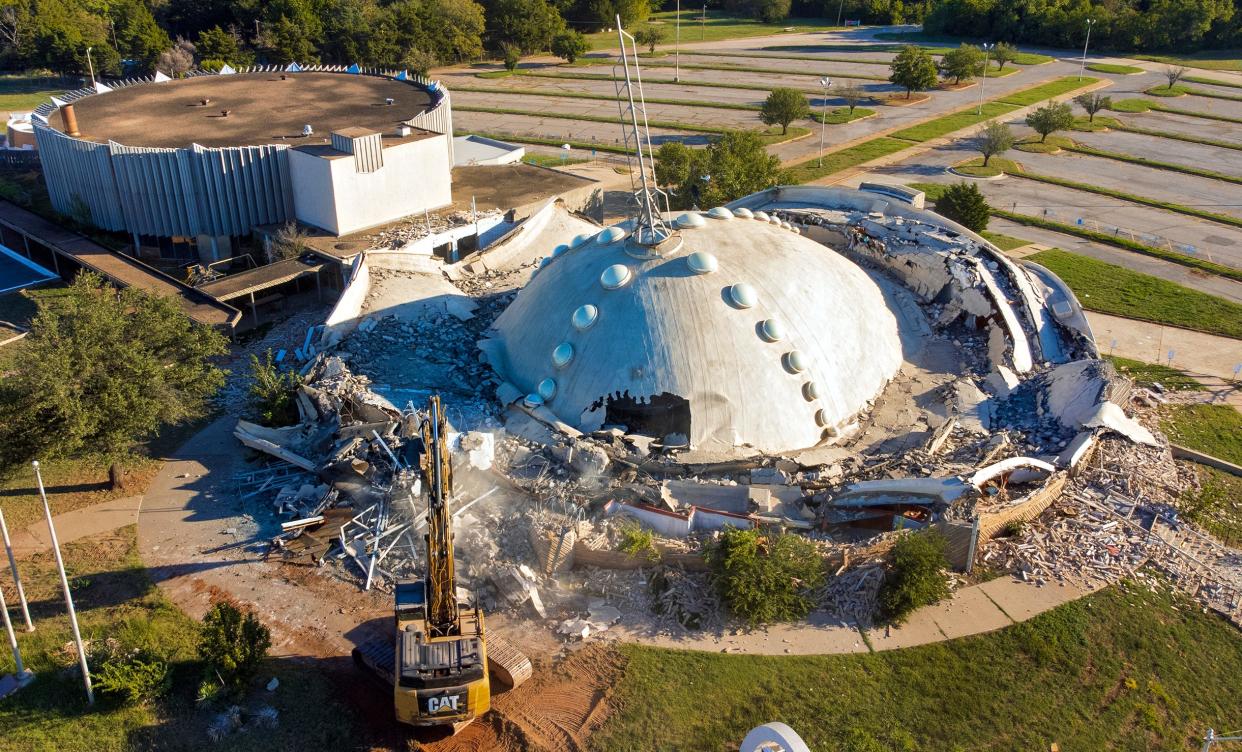Guest column: When we mourn the 'Egg church,' we are mourning the retreat of a great society

I didn’t really like it. Most of my memories driving by include uncut grass and a bleached-out marquee. Its concrete dome seemed too severe against the gentle Oklahoma horizon. The one time I went inside, it had the same laminate tiles and florescent lighting as the college-town Presbyterian church I grew up in. So why is the demolition of the "Egg Church" bothering me so much?
The iconic First Christian Church building served as a symbol to many of us. A time of prosperity, not just in markets, but in American thought. New architecture and artforms, new science, new infrastructure, new ways of living were being led by American minds. An America that still spent money, both public and private, on projects that redefined our goals as a society. First Christian’s “Church of Tomorrow” went up as an early infill project. Its architect was a congregant. It must have felt like Oklahoma City, still a young city, was right in step with modernity.
The church’s building connected us to that time in our own town. A living relic, it was a primary-source document we could be at, meet in, and reflect upon. I felt heir to a legacy of Oklahoma Citians who valued conscious design and empowering architecture. A congregation who made their house of worship a testament to a new way of thinking. The building’s continued existence honored their efforts and encouraged ours.
We’re told our city appreciates history. We weave stories of the Land Run, the Murrah Building bombing, oil booms and busts, and the promise of MAPS into today’s designs and ceremonies. We still fund grand civic projects, and we hope that our effort ― taxes, time and toil ― will bear our truth for generations to come. The destruction of the "Egg church" negates that promise. Standing only 66 years, less than a human lifetime, our takeaway is that imaginative places and attitudes are not valued in our city. We are left to ponder how long our new monuments will be allowed to last. Is the truth as we yearn for it today simply a commodity to bulldoze?
I am not naive to the financial problems of the church, nor do I think that 1950s America was without great societal ills. Still, the loss of First Christian Church abruptly separates us from an era when we were told to dream big. A time when our homegrown visionaries could articulate their faith and hope into stunning works of art. A world built on the premise that our day-to-day lives should be full of inspiration and wonder. When we mourn the "Egg church," we are mourning the retreat of a great society, one that will be replaced by quick profit and parking minimums. Our hearts break, not just for the dreamers of yore, but for those still striving to build a City of Tomorrow.
Judie Matthews is a historian and librarian working in Oklahoma City.
This article originally appeared on Oklahoman: 'Egg church' demolition closes chapter of intellectual prosperity

